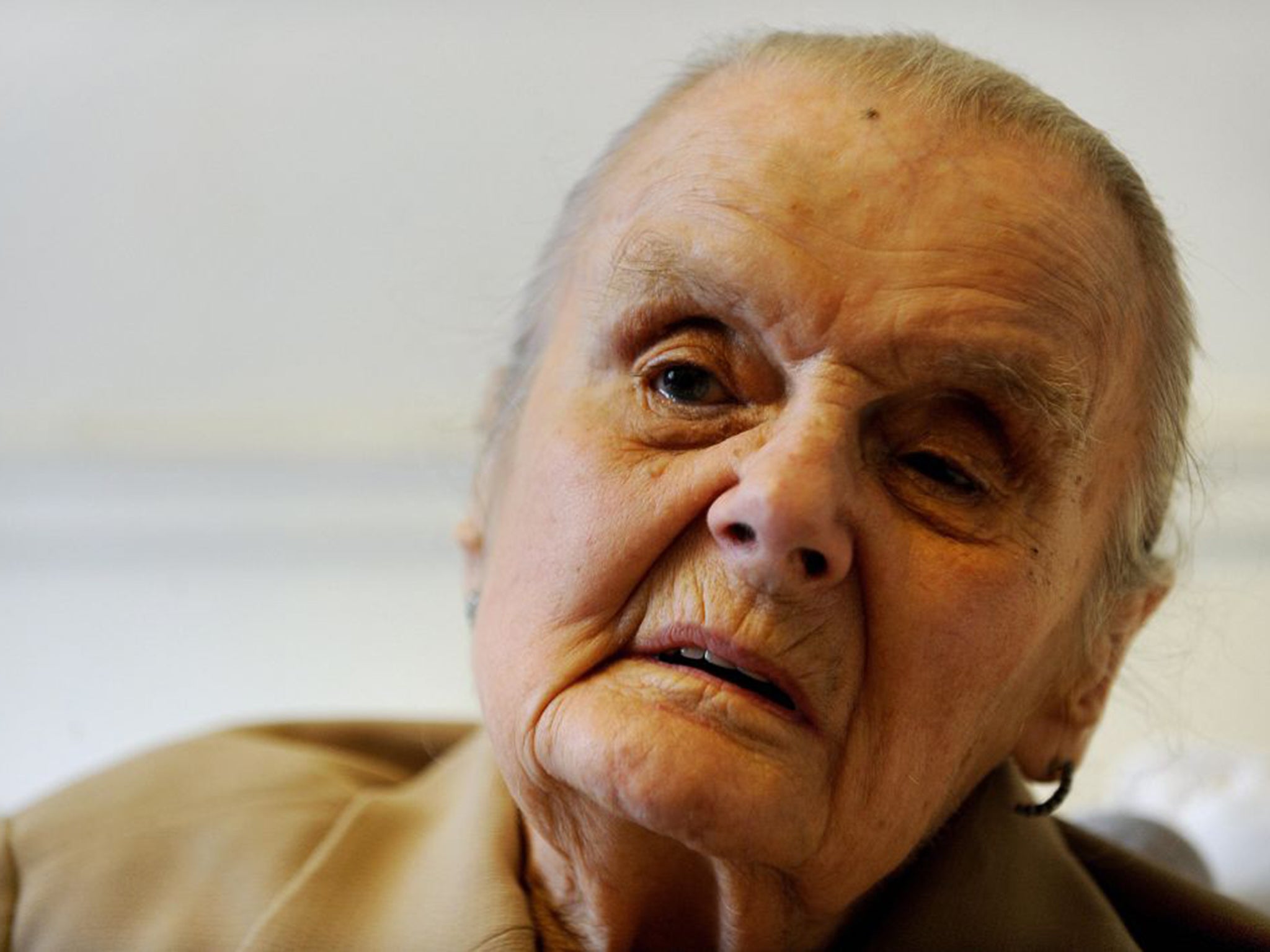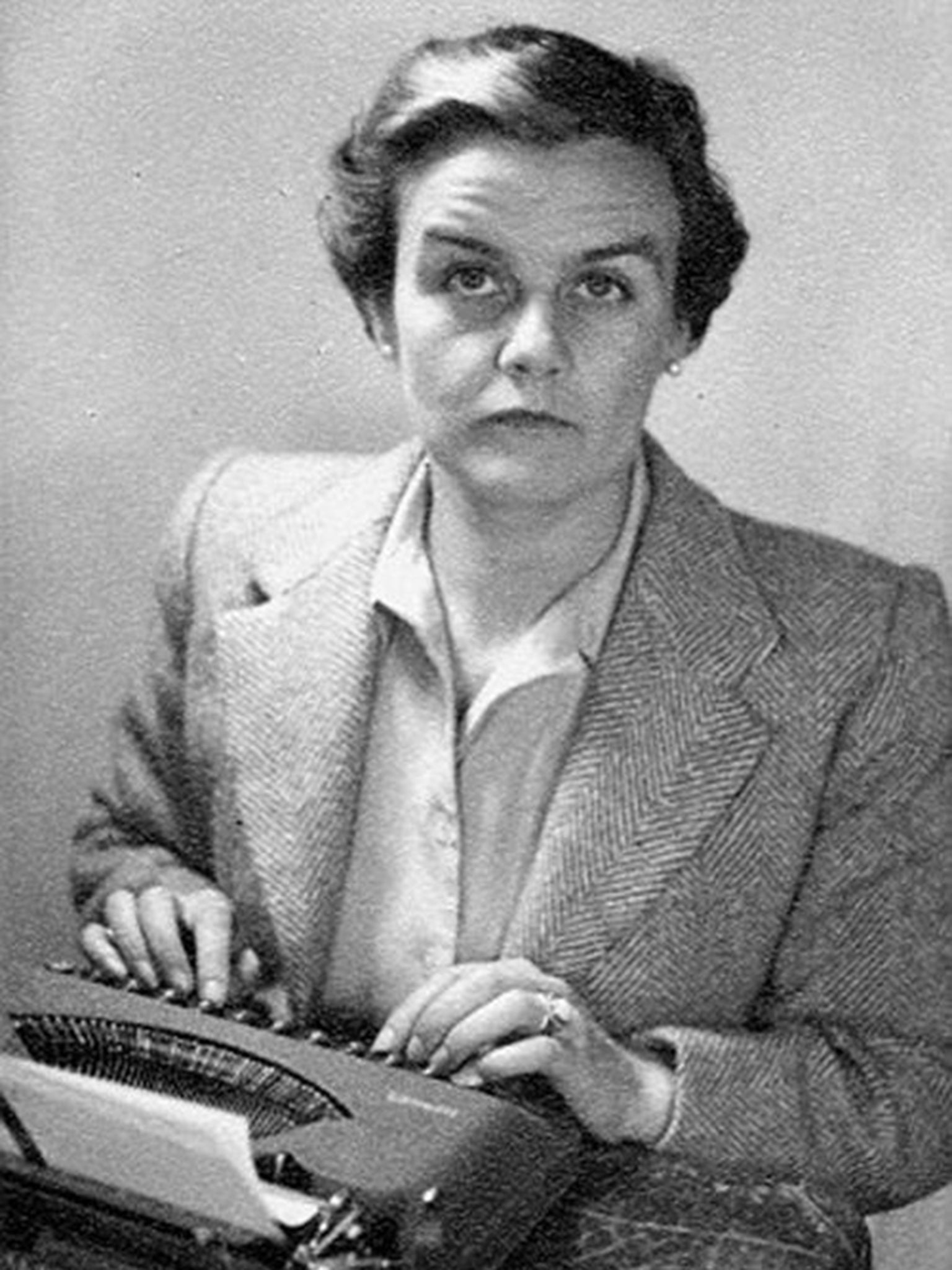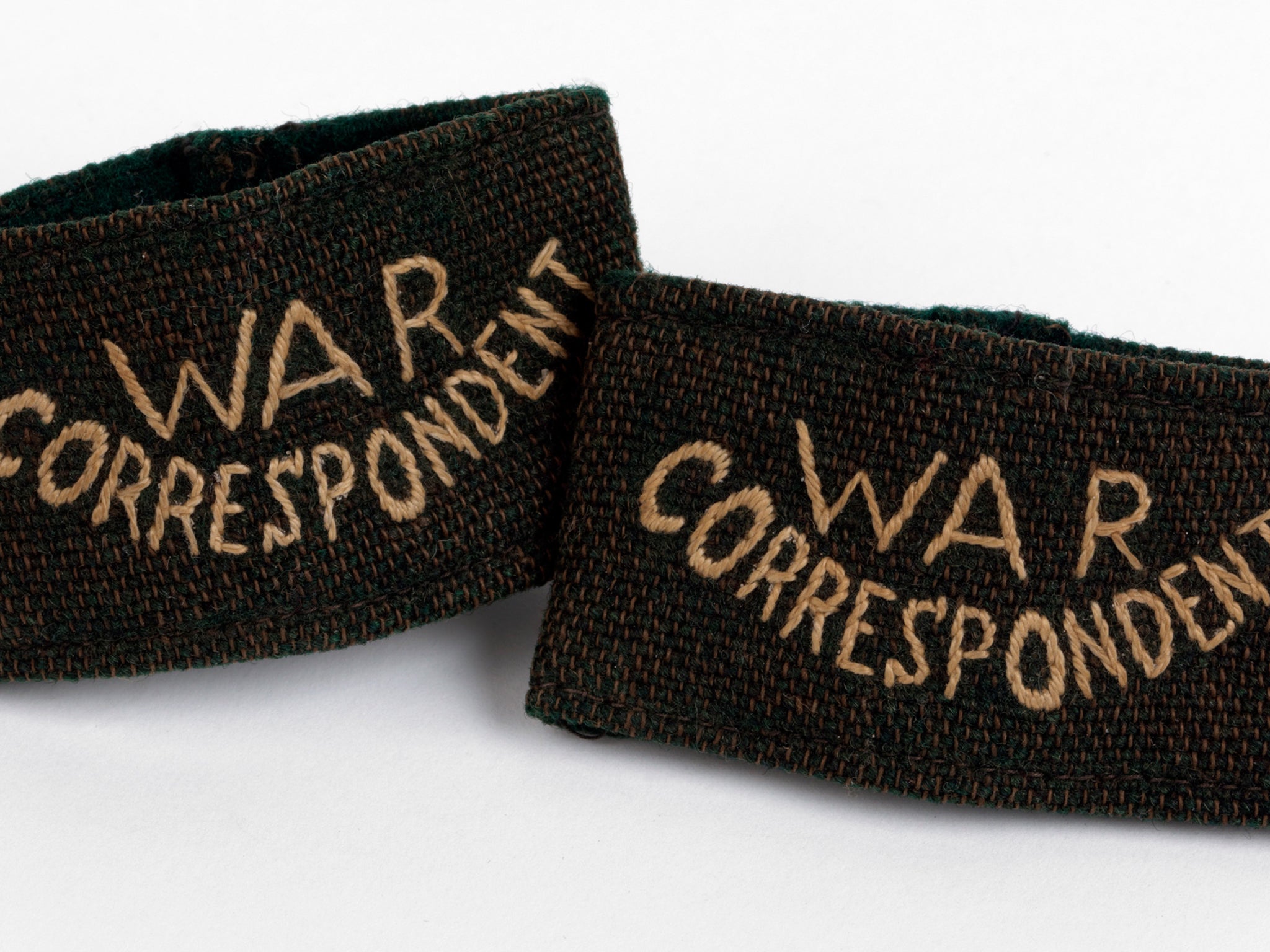Clare Hollingworth: Our last interview with the woman who broke WW2
Robert Fisk travelled to Hong Kong in 2015 to meet the grande dame of war reporting

Your support helps us to tell the story
From reproductive rights to climate change to Big Tech, The Independent is on the ground when the story is developing. Whether it's investigating the financials of Elon Musk's pro-Trump PAC or producing our latest documentary, 'The A Word', which shines a light on the American women fighting for reproductive rights, we know how important it is to parse out the facts from the messaging.
At such a critical moment in US history, we need reporters on the ground. Your donation allows us to keep sending journalists to speak to both sides of the story.
The Independent is trusted by Americans across the entire political spectrum. And unlike many other quality news outlets, we choose not to lock Americans out of our reporting and analysis with paywalls. We believe quality journalism should be available to everyone, paid for by those who can afford it.
Your support makes all the difference.When Suzanne and Helen opened the door of the cramped, box-like apartment in Albert Road, I didn’t even notice the small, huddled figure on the sofa. It was only when Helen, one of the two people who look after Clare Hollingworth in her Hong Kong home, stood aside that I saw the very elderly lady in a red cardigan with thin hair and jutting jaw and heavy spectacles and realised that I was looking at the reporter who wrote the greatest scoop of the Second World War.
Yes, in August of 1939, this crouched little woman – 104 years old, sightless now and moving only with the greatest difficulty around her tiny flat – boldly crossed the Polish-German frontier in a British diplomat’s car and saw General Gerd von Rundstedt’s Wehrmacht tanks, in their thousands, lined up to invade Poland.
There are some interviews that a journalist remembers – those that betray a politician’s cruelty, a soldier’s brutality, the courage of a doctor under fire, the kindness and dignity of a man or woman who have lost their family – but in this little home on the far side of the world, I was lost. How do you talk to a colleague who has been deprived of much of her memory, whose moments of extraordinary vision and bravery return only in occasional seconds of clarity and then bleakly disappear? Did she think, when she reported the German invasion of Poland, that the Nazis would win the war, I asked her? “No, I thought they’d lose the war,” she answers emphatically. “Because they didn’t care about people.” As good a description of all fascist dictatorships, I suppose.
But then she confuses her father with a family doctor called Anderson – “a handsome man” – and announces that she wrote her last report only the day before we meet – I know the feeling well! – and makes it clear that she still thinks she is a working correspondent. “I’ve been lucky so far,” she says. “I work hard.” Yes, maybe luck is what it is all about, surviving as a correspondent. And Clare Hollingworth has been very, very lucky. She reported from Poland, Germany, Algeria, Beirut, India, Israel and China. “I enjoy action,” she once told a radio interviewer. “I enjoy being in a plane when they’re bombing something.”
But her greatest scoop remains her first. She borrowed the British consul’s car, a Union flag fluttering on the bonnet, to drive over the still – just – peaceful frontier from Poland into Germany in August 1939, bought some batteries and wine at a local shop and, driving back, noticed that the wind lifted some vast hessian sacks in a valley below her – and revealed hundreds of Wehrmacht tanks lined up in battle order.
“The frontier is still closed to local traffic,” she wrote. “Everywhere I saw signs of the most intense military activity. In the two miles between Hindenburg and Gleiwitz, I was passed by 65 military dispatch riders on motorcycles. The only cars to be seen were those belonging to the military.”

“1,000 TANKS MASSED ON POLISH FRONTIER – TEN DIVISIONS REPORTED READY FOR SWIFT STROKE” was The Daily Telegraph’s headline next morning. By then, Clare was back in her Polish hotel in Katowice and saw the first German tanks moving past her window. When she called the British embassy in Warsaw, a diplomat refused to believe her story – so she held the telephone out of her bedroom window so he could hear the sound of German tank tracks.
When I ask her, all of 77 years later, whether the embassy really didn’t believe the Germans had invaded, she thinks for a while. “They knew,” she says. “Oh yes, they did.” But the Telegraph’s foreign desk was seemingly more sceptical. “They wanted London to be the place of power politics,” she remarks, by which I think she means – and this is the problem when you talk to such an elderly soul, there have to be assumptions – that the desk thought they knew better than she did. She has written, long ago, of her problems with her employers. But did she know she had written the biggest scoop of the century? “I had a pretty good idea,” the old lady beside me says. And she smiles and laughs a little and asks for a glass of wine.
Helen brings the wine – we have been joined by her great-nephew Patrick from Moscow and an American ex-journalist friend, Cathy Hilborn Feng – and gives the glass to her, half wine, half water, to sip. Patrick gestures to a grey filing cabinet by the window and pulls open one of the lower drawers. It is packed to the brim with unopened champagne bottles, gifts from the flock of journalists who have come, over the years, to celebrate Clare Hollingworth’s endless birthdays – champagne to be enjoyed, no doubt, over the birthdays to come. Patrick takes care that her passport remains up to date – part of Clare’s world in which a newspaper may still call on her for one final assignment.
Her greatest post-war scoop came in 1963 when she was working for The Guardian and based in Beirut – “I loved it, a place that was really home,” she tells me, “where you could go anywhere in a car and find your way, and I changed homes several times” – and heard that her colleague on The Economist and The Observer, Kim Philby, had defected to Moscow. His sudden absence from the Lebanon press corps had been noticed, but Clare prowled the harbour and was shown the Beirut port records which disclosed that a Soviet vessel had sailed without warning from Lebanon on the very day Philby disappeared. Frightened that they might be libelling Philby if they got the story wrong, The Guardian sat on the story – for three months!
On top of the champagne-filing cabinet, there is a photograph of Clare in a war correspondent’s uniform, sitting with a British officer in a lounge room in Beirut – it must have been taken during the Second World War, since most of her pictures at this time show her in uniform – and I recognise the same type of large Lebanese wooden panel doors which connect the rooms in my own Beirut apartment today.

The British invaded Lebanon in 1941, defeating French Vichy troops. Alan Moorhead, one of the other greats among the war’s correspondents, covered the same story. When I tell Clare that, at 104, she must have outlived all her colleagues – a world record for journalists – her memory reconnects perfectly. “It’s quite incredible for me – 104!” she says.
That memory zooms towards her like a satellite in outer space, brushing planet Earth and total recall. Ask her why she chose to become a journalist and, quick as a flash, she replies: “People asked me to. I enjoyed it. It’s good to be in charge of a lot of things. You get the point?”
Did she mean that she liked both writing history and being read? “Both.” And then the satellite swishes off to another planet and Clare is saying that she saw “the ruins” only yesterday – the ruins of 1939 Poland or the Roman ruins of Lebanon? – and that I’ll be able to read her latest story in the paper tomorrow. On the wall is an old copy of the front page of the South China Morning Post, recording one of her birthdays.
Her friends occasionally take her, in good weather, 100 yards down Albert Road to the fine old Foreign Correspondents’ Club – where she celebrated her 104th birthday in October – and where we later sit alone with Patrick and Cathy at “Clare’s table”, in a small corner dominated by photographs of the Vietnam war. Clare could sometimes misbehave a little, Cathy says, banging her cane on the floor for attention, shouting a little too loudly. But who can blame Clare? I spent our chat together, bellowing my questions into the veteran’s right ear. My wife tells her she looked very well, and she replies: “You’re flattering me.” And when told that she does indeed look good, she says: “I feel it.”
So there was only one question left for an Independent on Sunday correspondent. Did the future of newspapers lie in websites, in computers, I asked her? “Newspapers will all end up on computer,” she replies, but this was a bad thing. Why? She thought for several seconds. “You have to feel the paper,” she says.
I think about this as the plane taking me back from Hong Kong to Beirut via Paris soars over Siberia that same night, and I wonder whether “scoops” mattered on websites.
And then, some hours later, our flight captain announced that we would soon pass over the Polish-German border. Stalin moved the Polish borders west. But those roads which Clare Hollingworth travelled in 1939 still exist. And somewhere a few miles away, in the pre-dawn darkness below me, 77 years ago, was the very spot where Clare saw Von Runstedt’s legions about to launch the invasion that started the most titanic war in the history of the world. You can’t take a scoop like that away from anyone.
Join our commenting forum
Join thought-provoking conversations, follow other Independent readers and see their replies
Comments